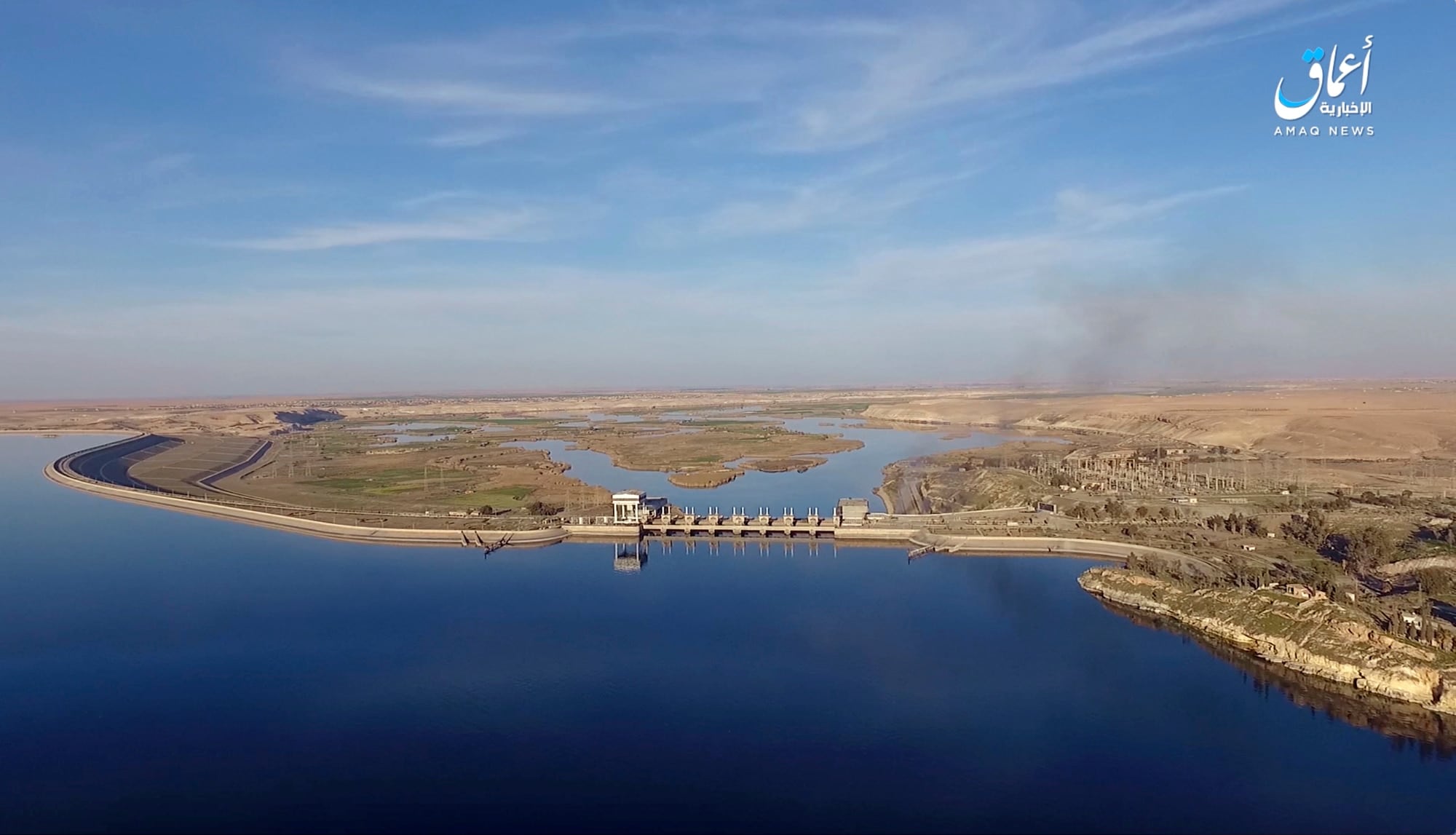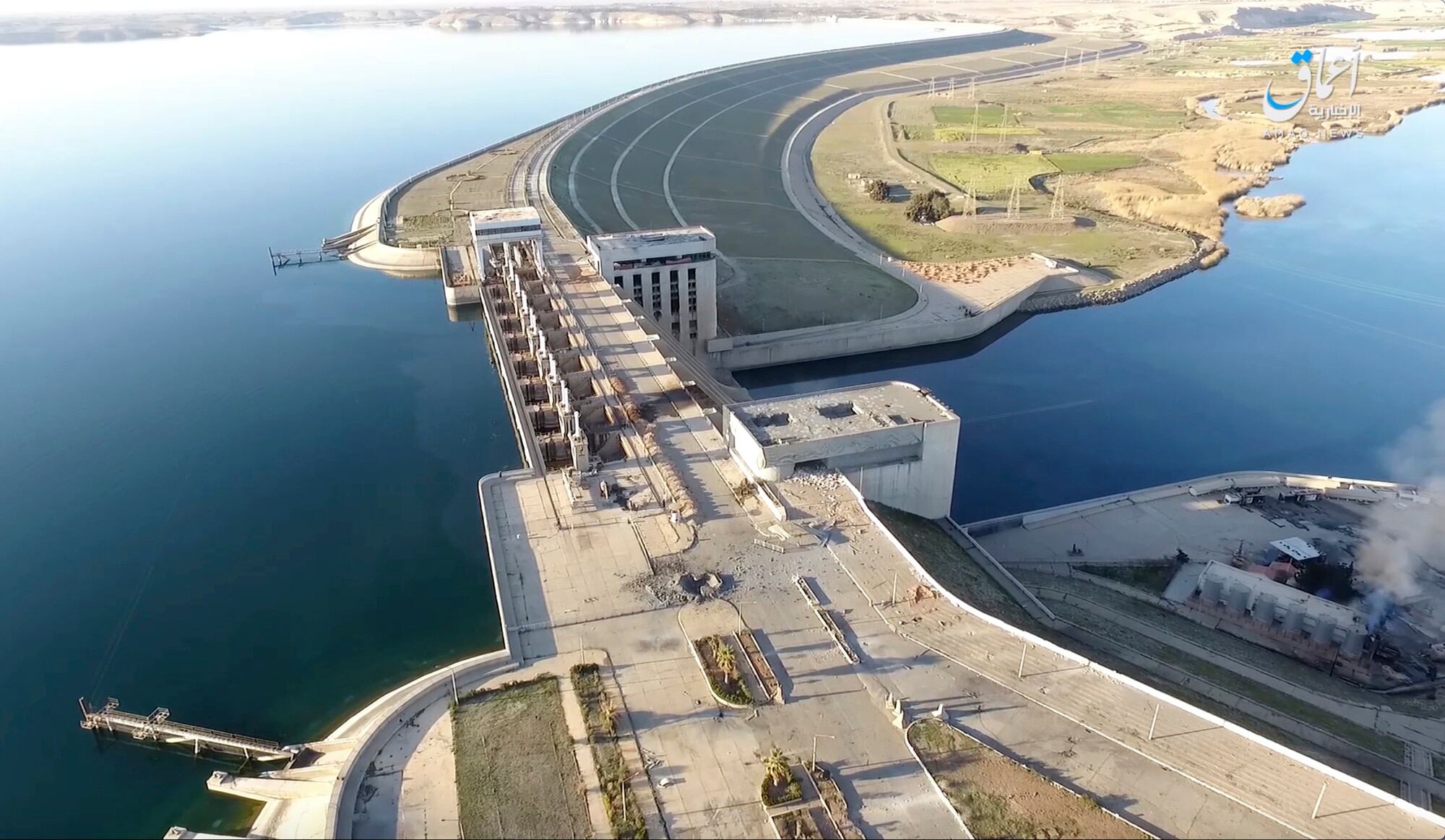BEIRUT — U.S.-backed forces in northern Syria paused military operations near a dam held by the Islamic State group on Monday to allow engineers to fix any problems after conflicting reports about its stability.
The decision by the Syrian Democratic Forces came a day after conflicting reports over whether civilians had begun evacuating the nearby city of Raqqa — the extremists' de facto capital — due to concerns about the Tabqa Dam on the Euphrates River.
Some activist groups opposed to ISIS have said residents are seeking higher ground, fearing that the collapse of the dam could cause severe flooding, while others said people were remaining in place. Conflicting reports are common in areas controlled by ISIS, which bans independent media.
The SDF, a U.S.-backed and Kurdish-led force, has been fighting ISIS in the area since Friday in an attempt to capture the dam, one of the main sources of electricity in northern Syria.
The SDF said in a statement that the cease-fire expired at 5 p.m. local time, after their engineers inspected the structure and found no faults. Photos credited to an embedded freelance journalist indicated they had just inspected the dam's spillway, which is on SDF-controlled territory. The main dam structure and the gates lie 4 kilometers (2.5 miles) away and are still held by ISIS militants.
The SDF said the request for a cease-fire was made by the dam's administrators, without specifying whether they were part of the Syrian government or ISIS, which operates a quasi-state in the areas under its control.
The Britain-based Syrian Observatory for Human Rights said technicians inside ISIS-held Tabqa did not reach the dam during the cease-fire, to reactivate its main power controls. There was no explanation given.
The engineer Ahmad Farhat, who oversaw the mechanical administration of the dam, said that it is "equipped with the necessary precautions for its own protection," but there needs to be technical personnel on site to engage them. He spoke with The Associated Press from the rebel-held northwestern Syrian province of Idlib.
Engineer Aboud al Haj Aboud who was the head of the electricity division of the dam said on social media that if indeed the control room is busted and the gates of the dam cannot be opened, it will still take at least a month for the waters being held back by the dam to overflow the top of the structure.
The U.S.-led coalition said it is taking every precaution to ensure the integrity of the dam. "To our knowledge, the dam has not been structurally damaged," it said on its Twitter account.

This still image taken from drone footage posted online Monday, March. 27, 2017, by the Aamaq News Agency, a media arm of the Islamic State group, shows the Tabqa Dam, in Raqqa, Syria.
Photo Credit: Aamaq News Agency via AP
SDF fighters on Sunday captured a strategically important air base from ISIS in Raqqa province, marking their first major victory since the United States airlifted hundreds of forces, as well as American advisers and artillery, behind enemy lines last week.
The SDF announced they had captured the Tabqa air base, 45 kilometers (28 miles) west of Raqqa.
On Monday, ISIS fighters detonated a car bomb on the southern edge of the air base, but it was not clear if it inflicted casualties among SDF fighters, the activist collective Raqqa is Being Slaughtered Silently and the Observatory reported.
Fighting is ongoing in areas near the air base, both activist groups said. The SDF said in another statement that its fighters captured two villages north of Tabqa on Monday.
Elsewhere in Syria, authorities resumed the evacuation of the last opposition-held neighborhood in the central city of Homs in an agreement to surrender the district to the government.
Opposition activists have criticized the agreement, saying it aims to displace 12,000 al-Waer residents, including 2,500 fighters. The Observatory has called the evacuees "internally displaced" people.
The government has rejected allegations that the Homs deal and similar agreements in other besieged areas amount to the forced displacement of civilians.
On Monday, 667 militants, along with their families, for a total of 2,009 residents, were taken by bus in the direction of the rebel-held city of Jarablus, near the Turkish border, according to an official in the Homs Governorate administration.
The official requested anonymity because he was not authorized to speak to the media.
Syrian state TV had forecast that some 700 people would leave, far fewer than the final tally.
The evacuation was planned to take place on Saturday, but no reason was given for the delay.
Opposition fighters agreed to leave al-Waer after years of siege and bombardment at the hands of pro-government forces. They were guaranteed safe passage to rebel-held parts of northern Syria.
The evacuations are expected to last weeks, after which the government will be able to claim control over the entire city for the first time in years.
Associated Press writers Albert Aji in Damascus, Syria, and Philip Issa in Beirut contributed to this report.





